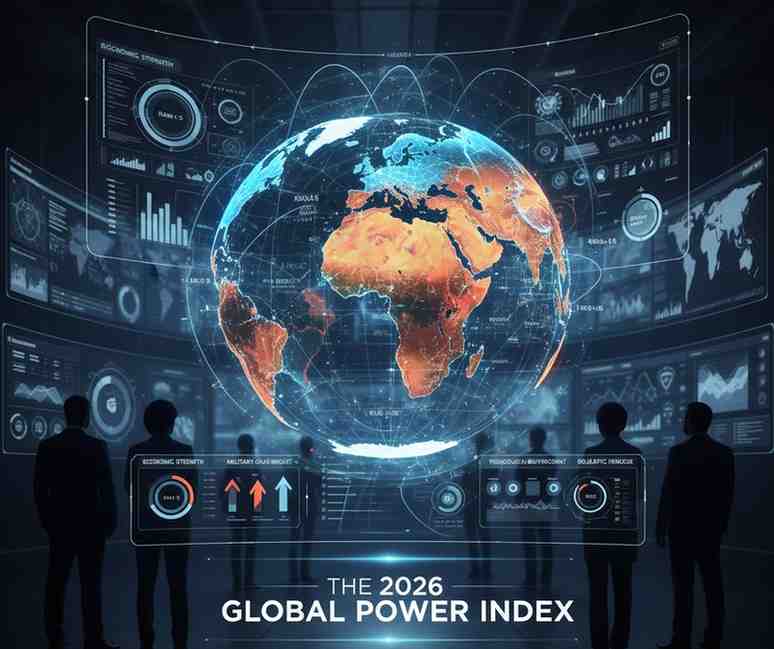
The Strength of Indian Democracy: Resilience in Times of Change
- admin
- August 10, 2025
- Uncategorized
- 0 Comments
New Delhi, India, 2025 — In a rapidly transforming global and domestic landscape, India’s democracy stands as a beacon of resilience. With its diverse population, robust institutions, and active civil society, Indian democracy continues to navigate the challenges of economic disparities, technological disruptions, and shifting political dynamics. Despite hurdles, the nation remains committed to its foundational ideals of liberty, equality, and justice.
This article explores the resilience of Indian democracy in times of change, supported by authentic data and real-world examples.
Pillars of Indian Democracy: Foundations of Resilience
1. Vibrant Electoral System
India’s electoral process, one of the largest and most inclusive in the world, ensures that every citizen has a voice.
- Fact: The 2024 General Elections saw a record 82% voter turnout, with over 950 million eligible voters participating (Election Commission of India).
- Impact: This robust voter engagement reflects the trust citizens place in the democratic process, even in times of political polarization.
2. Strong Institutions
India’s democracy thrives on its independent institutions, which act as checks and balances to prevent the concentration of power.
- Example: The Supreme Court’s 2024 ruling on electoral reforms mandated greater transparency in political funding, reinforcing the integrity of the electoral system.
- Impact: These institutions ensure accountability and uphold the rule of law, even amid societal and economic upheavals.
3. Diverse Representation
India’s democracy celebrates diversity, ensuring representation for marginalized communities and fostering inclusivity.
- Fact: The 17th Lok Sabha had the highest-ever participation of women MPs (78), reflecting strides toward gender equality in politics (PRS Legislative Research).
Challenges to India’s Democratic Resilience
1. Economic Inequalities
While India’s economy has grown rapidly, economic disparities threaten democratic equity.
- Fact: Oxfam India’s 2023 report highlighted that the top 1% of Indians control 40.5% of the country’s wealth, while the bottom 50% holds just 3%.
- Impact: Such disparities risk marginalizing underprivileged communities, limiting their access to political participation and public resources.
2. Polarization and Rhetoric
Divisive narratives have heightened communal and political polarization, challenging the nation’s unity.
- Example: The Election Commission of India (2024) flagged a 20% increase in communal rhetoric during electoral campaigns compared to 2019.
3. Misinformation and Media Control
The rise of misinformation and growing influence of corporate-owned media outlets pose challenges to informed democratic participation.
- Fact: India ranked 150th in the World Press Freedom Index (2024), highlighting concerns about journalistic independence.
Resilience in Action: Lessons from India’s Democratic Experience
1. Grassroots Movements
India’s vibrant civil society and grassroots movements play a crucial role in holding power to account.
- Example: The farmers’ protests (2020–21) forced the government to repeal contentious agricultural laws, demonstrating the power of collective action.
2. Electoral Reforms and Innovations
India has embraced technological advancements to enhance electoral transparency and participation.
- Example: The Election Commission’s use of blockchain technology in pilot projects for remote voting in 2024 expanded participation for migrant workers.
3. Balancing Tradition and Modernity
India’s democratic framework has adapted to changing societal dynamics while preserving its cultural ethos.
- Example: Initiatives like the Ek Bharat Shreshtha Bharat program promote cultural exchange and unity amid diversity.
Global Relevance of Indian Democracy
India’s resilience offers valuable lessons for democracies worldwide facing challenges like polarization, inequality, and authoritarian tendencies.
1. Embracing Diversity
India’s ability to manage and celebrate its pluralistic society serves as a model for multicultural governance.
- Example: Affirmative action policies, such as reservations for Scheduled Castes and Tribes, ensure representation for historically marginalized groups.
2. Upholding Civil Liberties
Despite challenges, India’s judiciary and civil society have actively protected fundamental rights.
- Example: The Supreme Court’s 2024 judgment reinforcing data privacy rights reflects the strength of India’s democratic institutions.
3. Civic Engagement
India’s emphasis on voter education and grassroots mobilization ensures active public participation.
- Example: The National Electoral Literacy Campaign has expanded digital literacy programs to counter misinformation.
Strengthening Democracy for the Future
To ensure continued resilience, India must address emerging challenges with a forward-thinking approach:
1. Reducing Inequalities
- Expand social welfare programs like Ayushman Bharat and strengthen rural infrastructure to bridge the urban-rural divide.
2. Enhancing Media Independence
- Enact laws to protect journalists and promote diverse ownership of media outlets.
- Recommendation: Fast-track the Journalist Protection Bill to safeguard press freedom.
3. Empowering Local Governance
- Strengthen Panchayati Raj institutions and decentralize decision-making to enhance grassroots participation.
4. Promoting Civic Education
- Expand initiatives like the National Electoral Literacy Campaign to include digital and media literacy programs.
Conclusion: A Resilient Democracy in a Changing World
India’s democracy, while not without challenges, remains a powerful testament to the resilience of democratic ideals. Its ability to adapt to change, embrace diversity, and uphold institutional integrity offers hope in an increasingly complex global landscape.
By addressing inequalities, safeguarding civil liberties, and fostering informed citizen participation, India can continue to strengthen its democratic foundations, ensuring that it remains a beacon of hope and a model for democracies worldwide.



